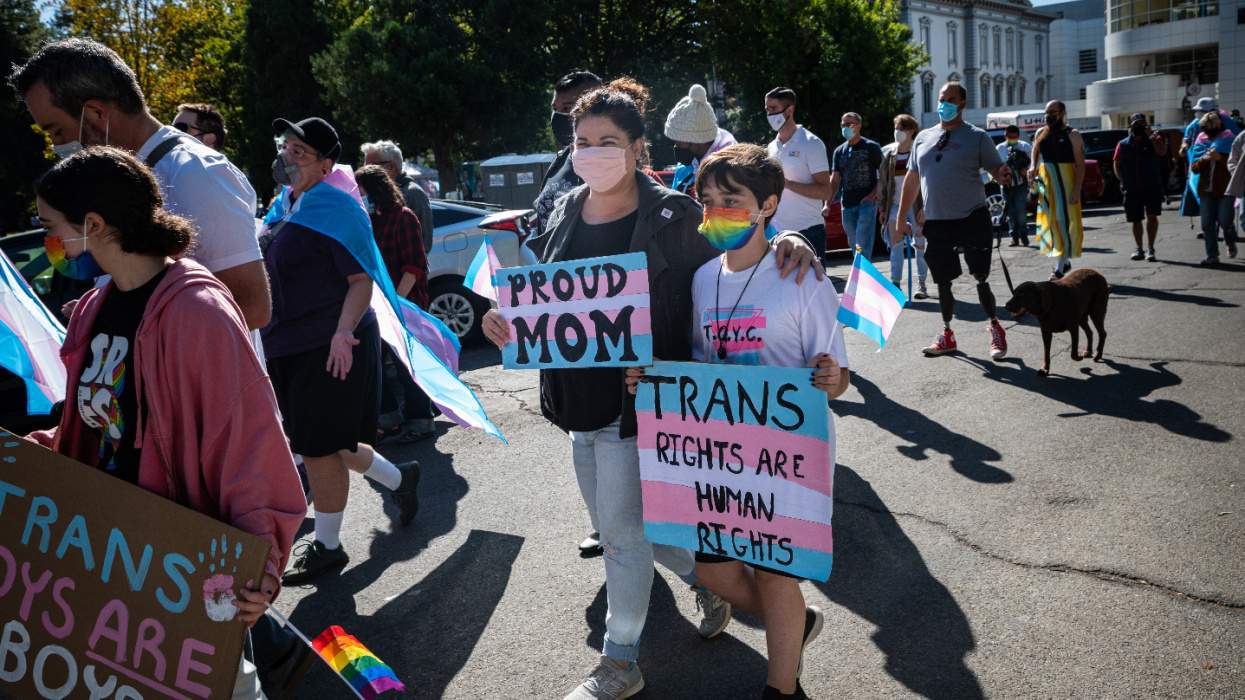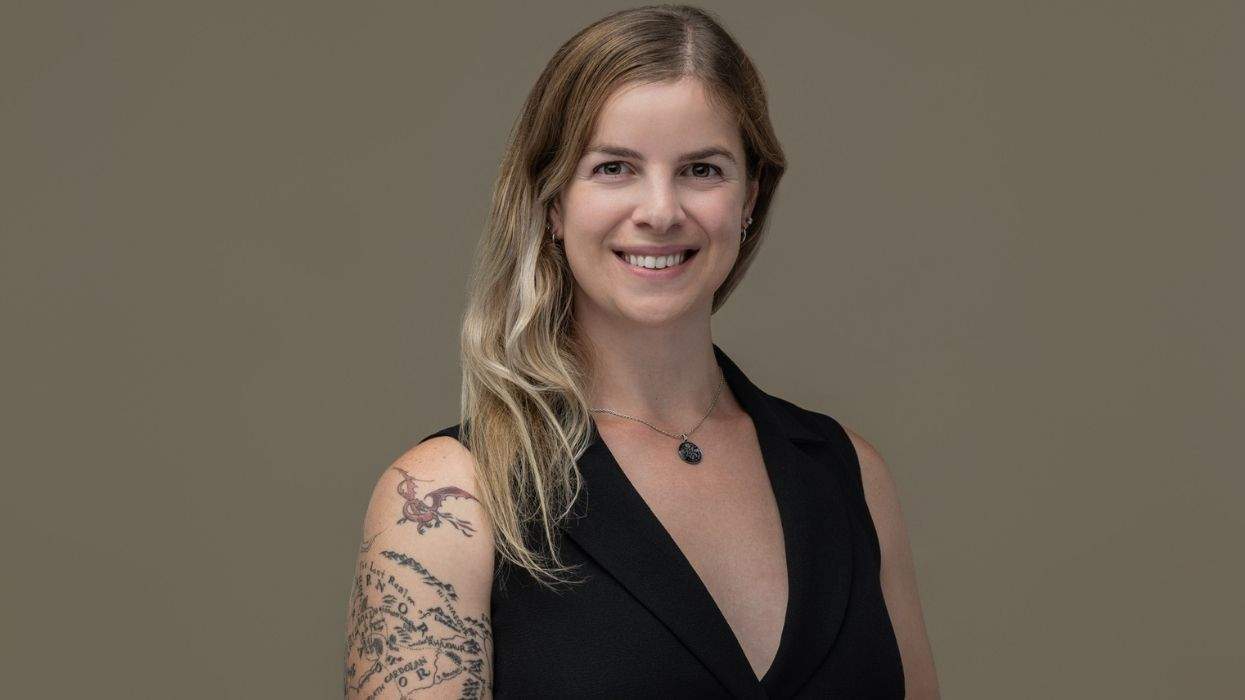LGBTQ+ and health groups filed a federal lawsuit Wednesday seeking to block Florida's new rule excluding gender-affirming care from Medicaid coverage.
Lambda Legal, Southern Legal Counsel, Florida Health Justice Project, and National Health Law Program, together with international law firm Pillsbury Winthrop Shaw Pittman LLP, filed the suit on behalf of four plaintiffs: August Dekker, Brit Rothstein, and two minors identified under pseudonyms, Susan (represented by her parents, Jane and John Doe) and K.F. (represented by his mother, Jade Ladue).
The lawsuit, Dekker et al. v. Marstiller et al., was filed in the U.S. District Court for the Northern District of Florida against the Florida Agency for Health Care Administration and its secretary, Simone Marstiller.
The Florida AHCA's rule went into effect August 21. It denies Medicaid coverage for hormone treatment, puberty blockers, surgery, and other procedures to treat gender dysphoria, although these procedures are covered for treating other conditions. Medicaid is a joint federal-state program, administered by each state, that pays for health care for people with low incomes.
"This exclusion is discrimination, plain and simple, and is not permitted under the Constitution," Carl Charles, senior attorney at Lambda Legal, said on a conference call Wednesday. It is "without justification" and is based on "inaccurate data" and "doctors who have never once treated a transgender person masquerading as experts."
The Florida rule denies coverage on the basis that these treatments for gender dysphoria are "experimental and investigational," as the AHCA put it in a report released in June. But that is not so, the lawsuit states.
"Empirical evidence and decades of clinical experience demonstrate that medical care for the treatment of gender dysphoria, also known as gender-affirming care, is medically necessary, safe, and effective for both transgender adolescents and adults with gender dysphoria," the suit reads. "Gender-affirming care is neither experimental nor investigational; it is the prevailing standard of care, accepted and supported by every major medical organization in the United States."
A memo supporting the exclusion "relies on pseudo-science, particularly purported expert 'assessments' that are biased and full of errors," the suit continues. "The 'assessments' are written by authors whose testimony has been disqualified in court and who have known ties to anti-LGBTQ advocacy groups. [Its] unfounded claims come from unqualified sources, which include a blog entry, letters to the editor, and opinion pieces."
"The exclusion represents dangerous governmental action that threatens the health and wellbeing of transgender Medicaid beneficiaries," the suit notes. "The purpose of Medicaid is to provide health care coverage to individuals who have low income and cannot otherwise afford the costs of necessary medical care. By denying coverage for gender-affirming care, Defendants effectively categorically deny access to medically necessary care to thousands of Floridians who lack other means to pay for such care."
The number of states with similar exclusions has been decreasing, Charles noted, with just eight other states restricting Medicaid coverage, and not all of them with such broad restrictions as Florida's. Lambda recently won a settlement in West Virginia with the state agreeing to lift its ban on Medicaid coverage for gender-affirming surgeries.
The suit charges that the Florida ban violates the Fourteenth Amendment to the U.S. Constitution, which guarantees equal protection of the laws; section 1557 of the Patient Protection and Affordable Care Act, which prohibits sex discrimination by any health program that receives federal funds; and the Medicaid Act's Early and Periodic Screening, Diagnostic, and Treatment provisions as well as its requirement to assure comparable coverage for every Medicaid beneficiary.
The conference call included two of the plaintiffs. August Dekker, a 28-year-old trans man, has rheumatoid arthritis and lives on Supplemental Security Income. His hormone treatments will no longer be covered by Medicaid because of the new Florida rule. "I'm kind of scrambling to find a way to continue taking my prescribed medications," he said.
Jade Ladue, mother of 12-year-old trans son K.F., noted that K.F. has identified as a boy since he was 4. He had limited media exposure at the time, so "we knew he was speaking from the heart," Ladue said. He is on puberty-delaying medication and hopes to have testosterone therapy at some point. Jade Ladue is a patient coordinator at a dental office, and her husband, Joshua Ladue, is on Social Security disability. They have four other children, and putting the whole family on her employer-provided insurance is unaffordable, so the Medicaid coverage is crucial she said.
The suit seeks a preliminary injunction blocking enforcement of the rule while the court case proceeds, plus a permanent block on it, compensatory damages to the plaintiffs, and attorneys' fees and court costs.
The Medicaid rule is one of numerous anti-LGBTQ+ actions taken by Florida recently. These include the infamous "don't say gay" law, which restricts classroom instruction on sexual orientation and gender identity.















Charlie Kirk DID say stoning gay people was the 'perfect law' — and these other heinous quotes
These are some of his worst comments about LGBTQ+ people made by Charlie Kirk.